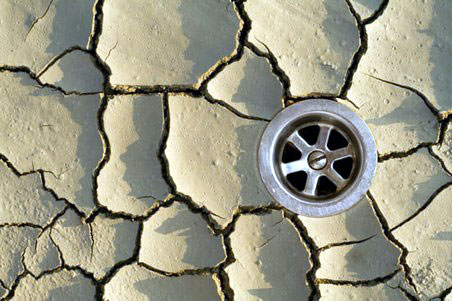A timely intervention in the debate over water supplies and the health of UK rivers by the former Natural Environment and Fisheries Minister Richard Benyon MP has received a warm welcome from anglers and environmental groups.
With the government’s new Water Bill set to begin it’s parliamentary passage this month and critics concerned that crucial measures such as abstraction reform and water metering are absent from the legislation, key stakeholders are pleased that Benyon has made it clear that ministers need to do go much further with their reforms if catastrophic droughts and huge environmental damage are to be avoided in the future.
Benyon, who left the government in the last ministerial reshuffle, gave an interview to the Observer and has published an article entitled Water – time to raise our game in which he describes the fact that two thirds of rivers fail to make the standard of good ecological status as ‘a shaming statistic’.
He wrote:
“Around two-thirds of our rivers are failing ecosystems. Much of the cause for this shaming statistic is over abstraction. We suck aquifers dry to provide cheaper water for an increasing population in the south and east of England. Most of the water we use comes from out of the ground or out of our rivers. But unsustainable abstraction ultimately costs the very households we want to protect. Dry aquifers mean greater cost down the line if the taps are going to continue to flow. We need a relentless drive to use less water through increased demand management. Southern Water’s universal metering project should see a reduction of water use in most households by around 15%. Other water companies and policy makers should be watching this project closely.”
Mr Benyon goes on:
“But the (Water) Bill is only part of the solution. For the sake of the water company customers of today and tomorrow and the environment that supports them we need meaningful abstraction reform, proper demand management and a deluge of increased investment in reservoirs, pipes and other infrastructure. Politicians need to do something alien to their default position of looking at a five year timescale. “
Richard Benyon’s one time Labour parliamentary neighbour, Martin Salter, the former Reading West MP who now works as Head of Campaigns for the Angling Trust, described the ex minister’s intervention as ‘a wakeup call for a generation of politicians who are in denial over the water crisis that faces Britain’.
Martin Salter said:
” Richard Benyon’s endorsement of the case for huge investment in the water industry, including the long overdue introduction of universal metering, to keep the rivers flowing and the taps from running dry should serve as a wakeup call for a generation of politicians who are in denial over the water crisis that faces Britain. As he rightly says we cannot go on sucking the aquifers dry and irrevocably damaging both wildlife and the environment without taking steps to tackle demand and water wastage.”
The World Wildlife Fund and the Salmon & Trout Association echoed Benyon’s calls for action to protect our natural heritage, protect public supply and ensure bills remain affordable.
WWF freshwater expert Dr Rose O’Neill said:
“Richard Benyon is right to highlight that the government needs to take action now to tackle the hidden water crisis. In this water bill the government must follow through on its promises to tackle the issue of damaging abstraction of our rivers, affordability (through meters, social tariffs and water efficiency), as well as changing Ofwat’s remit to ensure water sustainability is guaranteed.”
Paul Knight ,Salmon & Trout Association CEO said:
“We applaud and support Richard Benyon’s stance that the current lack of resilience of Britain’s water system means that a few more months of dry weather last year would have delivered “humiliation as a country”, with people in “the sixth biggest economy in the world, in one of the most economically vibrant parts of that country, having to collect water from standpipes in the street. We urge everyone who cares about our fragile aquatic environment to put pressure on the government to recognise that water is a precious resource, not a limitless commodity.”






